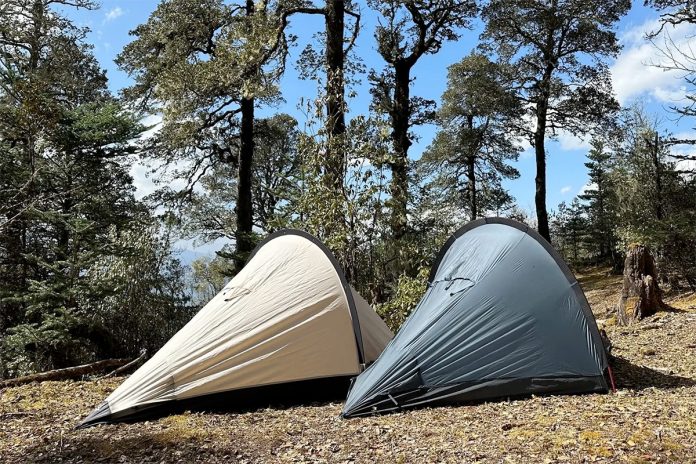Outdoor enthusiasts often find themselves grappling with the dual demands of packing light and staying protected against the elements. With these adventurers in mind, Thecatal, a forward-thinking outdoor gear startup, has introduced the Wind Anchor tent series. This ultralight backpacking tent not only promises quick setup times but also claims resilience against extreme weather conditions, making it a compelling option for those who venture into unpredictable environments. Let’s delve into the features and performance of this novel tent, exploring how it stands up to its bold promises.
Innovative design for quick setup
The Wind Anchor tent series markets itself with a striking claim: a setup time of as little as 10 seconds. While this sounds enticing, it’s worth noting that this rapid assembly is contingent on specific conditions. The tent’s single collapsible, shock-corded pole must be preinstalled. In a practical backpacking scenario, the tent is more realistically set up within 60 seconds. This involves unpacking the components, assembling the pole, and staking the tent with two to six pegs. Despite the discrepancy between the advertised and actual setup times, the process remains impressively quick, enabling campers to swiftly transition to other tasks.
Unique structural design
A standout feature of the Wind Anchor tent is its semi-conical diamond-floored shape. This innovative form, which Thecatal claims is a first in tent design, simplifies setup and enhances aerodynamic performance. Unlike the traditional hexagonal footprints seen in other ultralight tents, the Wind Anchor’s structure narrows to single points at each end, reducing the number of stakes needed and improving its stability in high winds.
Thecatal’s confidence in this design is reflected in its bold claim that the Wind Anchor can withstand Level 12 hurricane-strength winds, reaching speeds of 70 to 80 mph. While it’s unlikely that many campers will intentionally test this in such extreme conditions, the assurance of robustness provides peace of mind for those heading into windy environments.
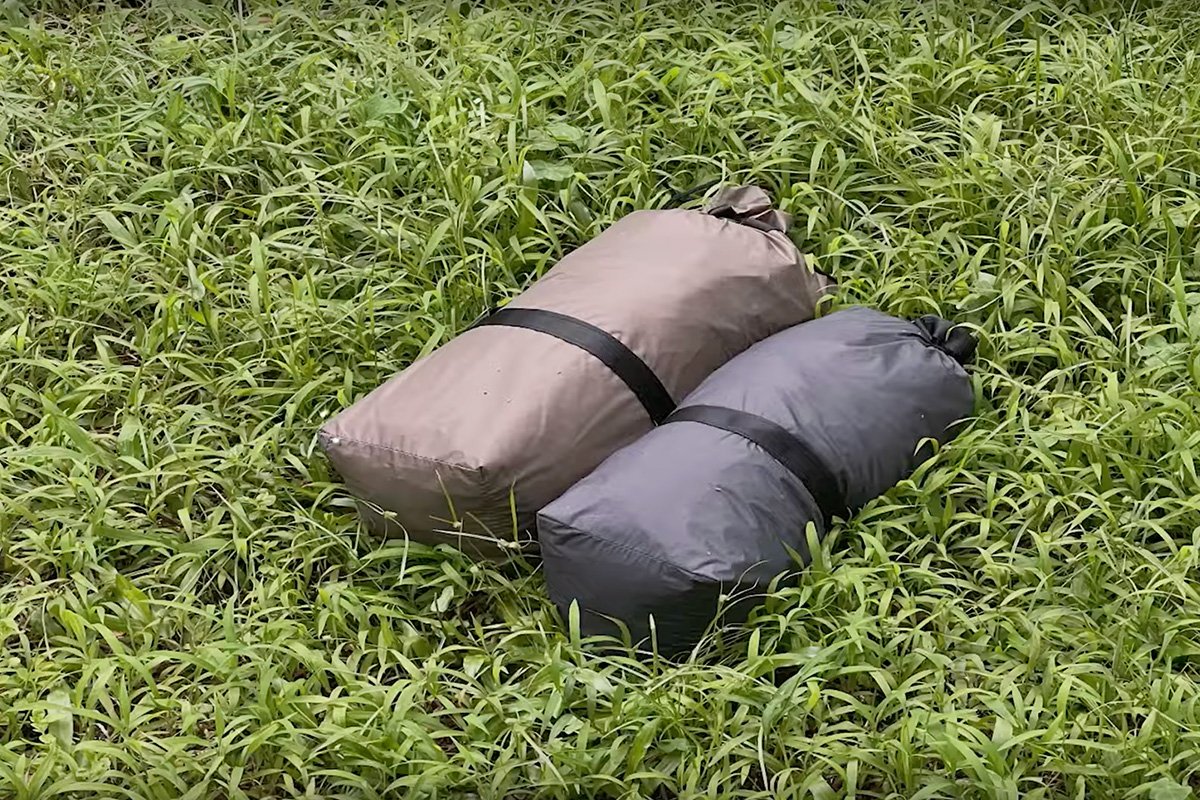
Ventilation and breathability
Condensation is a common challenge in single-wall tents, but the Wind Anchor addresses this with a comprehensive ventilation system. Six vents are integrated around the tent’s body, promoting airflow and reducing the buildup of moisture inside. The tent also features two large mesh doors with rollaway storm flaps, allowing for additional ventilation when weather conditions permit.
Ultralight and compact
Weighing in at just 1.7 lbs (782 g) for the Pro model, including the tent body, pole, and two stakes, the Wind Anchor is remarkably lightweight. Even when packed with all six stakes and four Dyneema guy lines, the weight only increases slightly to 1.8 lbs (818 g). This minimal weight, combined with its compact packed dimensions of 11 x 4 x 4 inches (28 x 10 x 10 cm), makes it an ideal choice for backpackers looking to keep their load as light as possible.
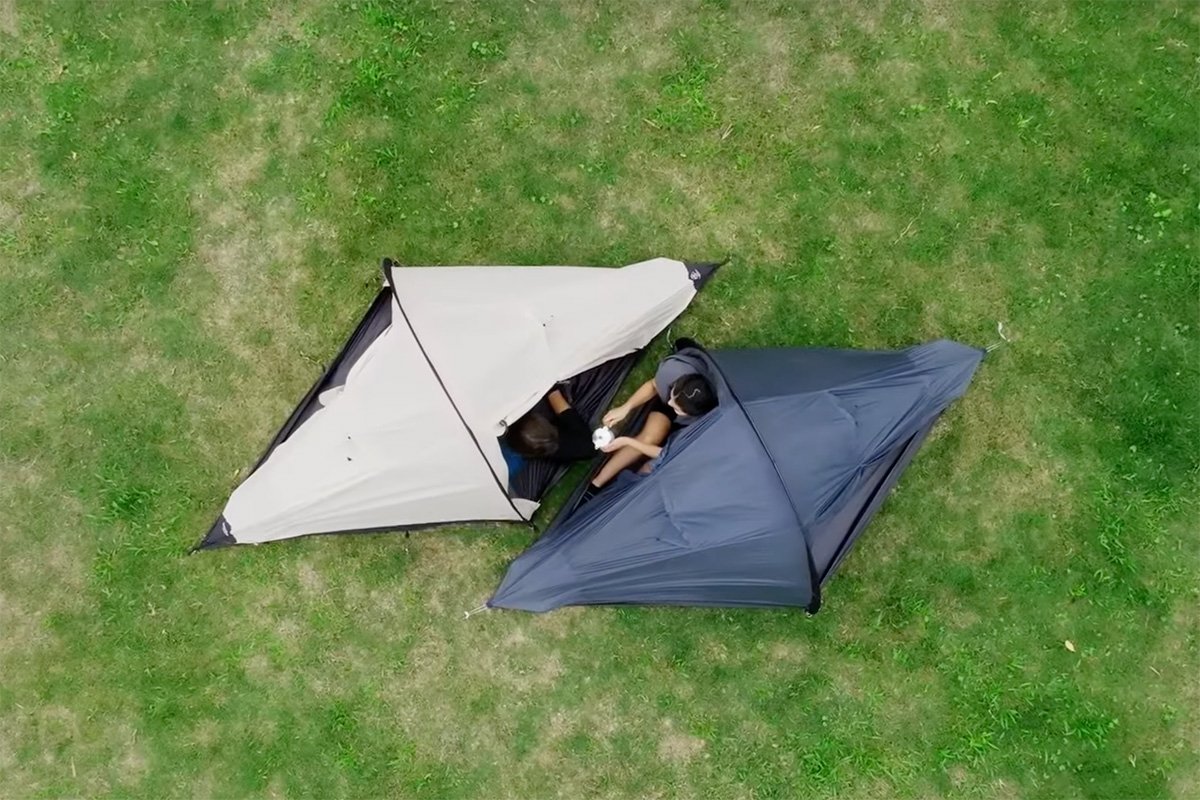
Versatile hammock compatibility
Adding to its versatility, the Wind Anchor can double as a hammock-supported tree tent. Its diamond-shaped floor design allows it to be mounted between a pair of trees, elevating campers off the ground. While this setup requires additional straps or guy lines and may not match the 10-/60-second setup times or Level 12 wind performance, it offers a unique option for those looking to camp above ground level.
Practical features
The Wind Anchor is equipped with integrated storage pockets and a footlocker at the tent’s tip, providing a dedicated space to keep shoes dry, ventilated, and separate from the main living area. These thoughtful features enhance the tent’s functionality, ensuring a more organized and comfortable camping experience.
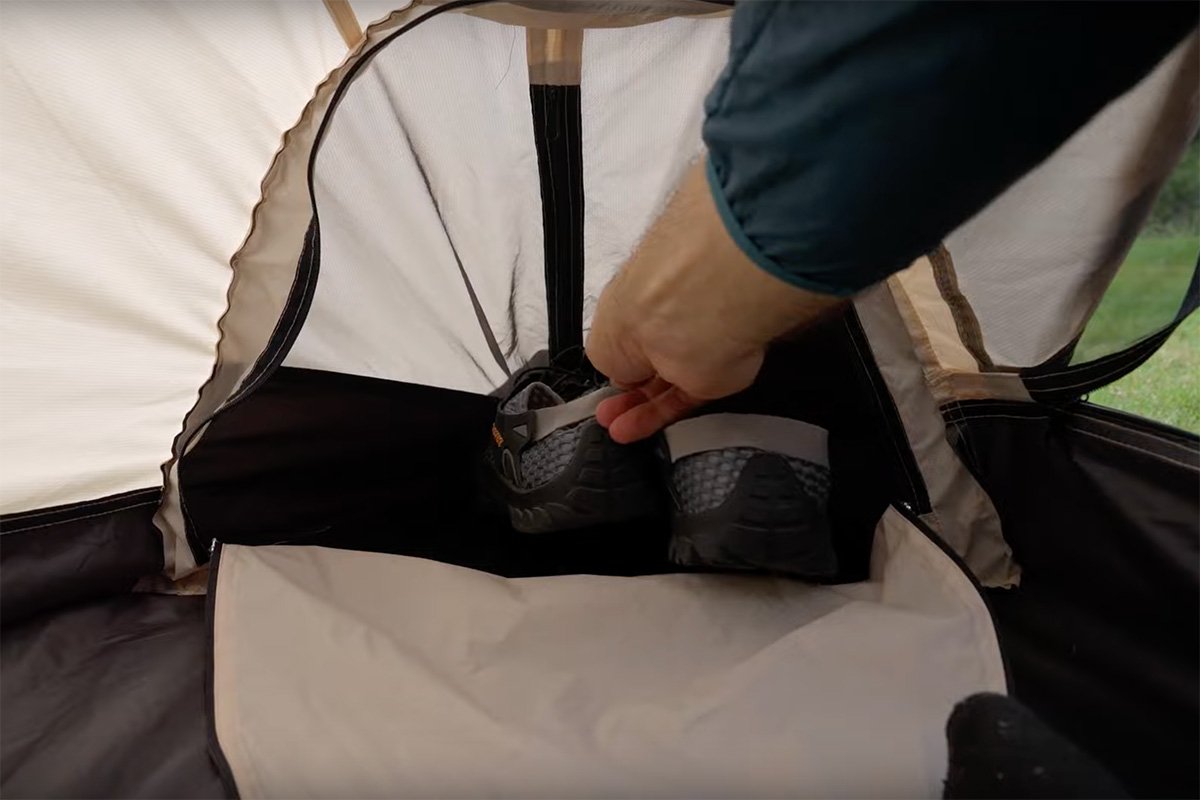
Crowdfunding success
Thecatal has turned to Kickstarter to fund the launch of the Wind Anchor series, and the response has been overwhelmingly positive. The campaign has already tripled its $10,000 goal, indicating strong market interest. Early backers can secure the lightest Pro model for a pledge of $249, a 32% discount off the planned retail price. The standard Wind Anchor, with a slightly higher weight of 1.9 lbs (850 g), is available for pledges starting at $199. Additional optional accessories, such as a reflective protective tarp, hammock, and footprint, are also offered. Thecatal hopes to begin deliveries in October.
Practical insights
Reflecting on my own camping experiences, the promise of a quick and easy setup resonates deeply. I recall a particularly challenging trip in the Rocky Mountains, where unpredictable weather and rocky terrain made setting up camp a strenuous task. A tent like the Wind Anchor, with its fast setup and robust design, would have been a game-changer, allowing me to focus more on enjoying the natural beauty around me rather than struggling with cumbersome equipment.
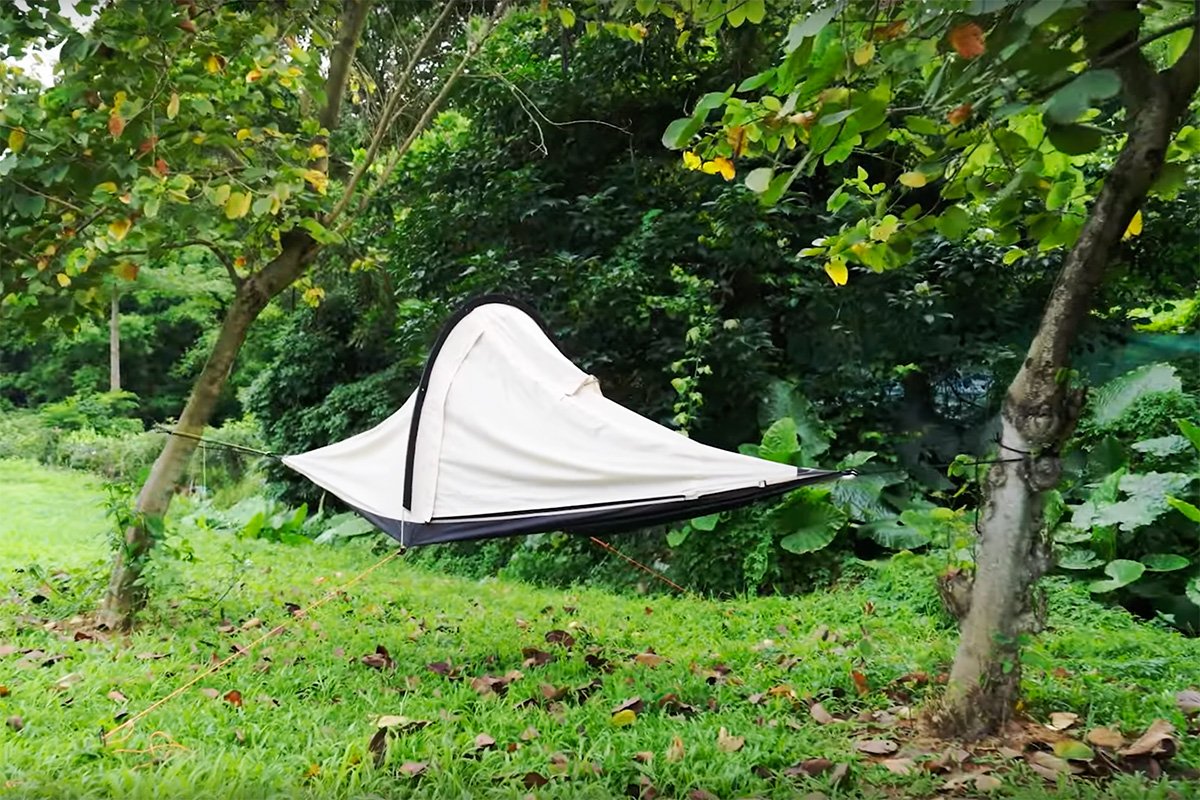
The Wind Anchor’s blend of innovative design, lightweight construction, and practical features positions it as a strong contender in the ultralight backpacking tent market. While its bold claims might seem ambitious, the underlying technology and thoughtful details suggest it can meet the demands of serious outdoor adventurers. Whether you’re an experienced backpacker or a casual camper, the Wind Anchor offers a compelling option for your next outdoor excursion.
Source: Thecatal

